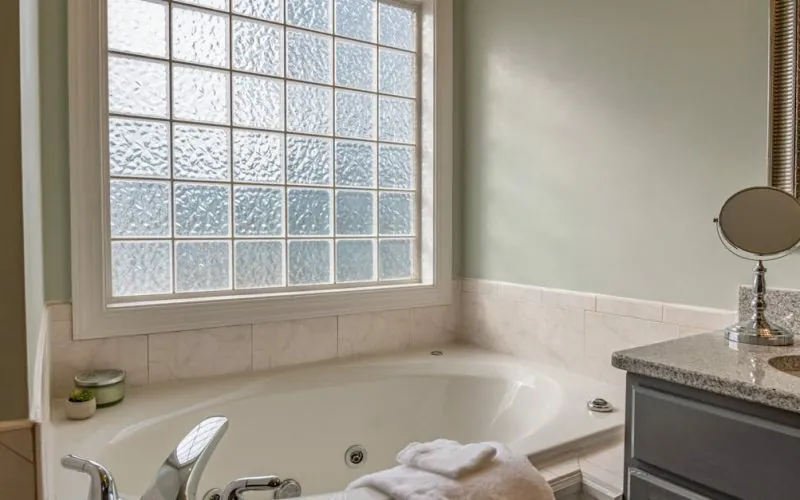Table of Contents
ToggleWater is the unsung hero of every household. It’s not just for quenching thirst or keeping plants alive; it’s the secret ingredient that makes life at home run smoothly. From that delightful splash of water in your morning coffee to the glorious waterfall effect in your shower, water plays a starring role in our daily routines.
But wait, there’s more! Water doesn’t stop at the kitchen sink or the bathroom faucet. It’s busy outside too, keeping gardens lush and lawns green. So, what are some of the most common ways water works its magic inside and around the home? Let’s dive in and explore the many roles this essential resource plays in creating a comfortable and enjoyable living space. After all, who knew H2O could be so versatile?
Water Usage Inside the Home
Water serves multiple essential functions throughout the home, impacting daily life in various ways.
Drinking and Cooking
Drinking water represents one of the most vital uses inside the home. It’s necessary for hydration and overall health. Cooking, too, relies heavily on water, whether boiling pasta or steaming vegetables. Clean drinking water is essential in food preparation, ensuring safety and enhancing flavor. Many households utilize water for making beverages such as tea and coffee, showcasing its versatility. Besides cooking, it’s also used in baking, measuring precisely to achieve the desired consistency in dough and batter.
Cleaning and Hygiene
Cleaning tasks depend significantly on water, facilitating effective sanitation. Dishwashing requires water to remove dirt and disinfect kitchenware. Bathroom routines emphasize its role in personal hygiene; showers, baths, and handwashing all rely on this resource. Many households use water for laundry, ensuring clothes remain fresh and clean. Additionally, household cleaning products often need water to increase their effectiveness, highlighting its importance in maintaining a healthy living environment.
Heating and Cooling Systems
Heating and cooling systems in homes also depend on water for their functionality. Radiant heating systems use heated water to warm spaces efficiently. Hydronic systems circulate hot water through radiators, providing even warmth during colder months. In contrast, air conditioning units utilize water in evaporative cooling systems, offering temperature regulation during hot weather. These systems illustrate water’s crucial role in maintaining comfort levels, ensuring a pleasant living atmosphere.
Water Usage Around the Home
Water plays a crucial role in enhancing the functionality and aesthetic appeal of outdoor spaces. It serves varied purposes that contribute to the overall quality of life.
Gardening and Landscaping
Gardening thrives on water, serving to nourish plants and sustain healthy growth. Regular watering helps flowers and vegetables flourish, especially during dry spells. Irrigation systems provide efficient distribution of water, ensuring that garden areas receive adequate hydration. Mulching retains moisture in soil, reducing the need for frequent watering. Properly timed watering schedules help gardeners conserve water while promoting lush landscapes.
Outdoor Cleaning and Maintenance
Water facilitates outdoor cleaning activities, making the upkeep of driveways and patios straightforward. Washing vehicles with water not only maintains their appearance but also protects their surfaces. Pressure washers utilize water for effective deck and siding cleaning, removing grime and debris efficiently. Regular hose use helps keep outdoor furniture free from dust and dirt, contributing to a tidy environment. Collecting rainwater for cleaning can also enhance sustainability and lessen utility costs.
Water Features and Pools
Water features add tranquility and visual interest to outdoor spaces. Fountains create a soothing atmosphere, attracting birds and enhancing garden aesthetics. Pools provide leisure and recreation, serving as a central point for family gatherings. They require regular water maintenance to keep the water clean and safe for swimming. Incorporating splash pads or decorative ponds can further enrich outdoor experiences, fostering enjoyment while utilizing water effectively.
Environmental Impact of Water Use
Water usage has significant implications for the environment. Efficient management of water resources can greatly reduce strain on local ecosystems and conserve essential habitats.
Conservation Techniques
Implementing conservation techniques proves effective in minimizing waste. Installing low-flow faucets and showerheads reduces water consumption without sacrificing performance. Rain barrels capture runoff for later use, supporting gardens and landscaping. Additionally, fixing leaks promptly prevents unnecessary water loss. Collecting information on daily water use can encourage positive changes and promote more sustainable habits.
Sustainable Practices
Adopting sustainable practices enhances water management in households. Utilizing drought-resistant plants reduces the need for frequent watering, promoting biodiversity. Employing smart irrigation systems schedules watering based on weather conditions and plant needs. Eco-friendly cleaning products, requiring less water for rinsing, contribute to more efficient water usage. Furthermore, educating family members about the importance of water conservation fosters a culture of awareness and responsibility within the home.
Water’s role in the home is multifaceted and essential for daily living. From enhancing personal comfort to supporting outdoor beauty, its significance can’t be overstated. By understanding how water is utilized inside and around the home, individuals can appreciate its value and the need for responsible management.
Implementing conservation techniques ensures that this vital resource is used efficiently, benefiting both households and the environment. As families adopt sustainable practices, they contribute to a healthier ecosystem while enjoying the many advantages that water provides. Awareness and education about water usage foster a culture of responsibility, making every drop count.





